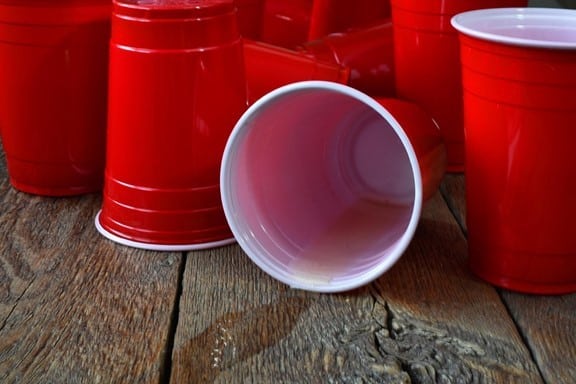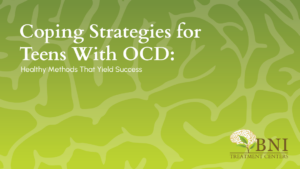Why Do Teenagers Drink Alcohol?
So, you are putting away your teen’s laundry when you happen upon their stash of vodka hidden in the sock drawer. Stumbling onto a teenager’s hidden alcohol can be an extremely distressing event for a parent. Feelings of fear and shock are common reactions for parents in this dreaded situation. No matter how aware you might feel you are as a parent, when evidence to the contrary emerges it can really set you back on your heels.
While understandable that the parent’s first knee jerk reaction may be fury, it usually isn’t a good idea to overreact. Teens do experiment with drugs and alcohol, this is a well known fact. How to navigate the situation is not so well understood, however. So, what to do when you find alcohol in your child’s room… this is the topic we shall explore.
About the Teenage Brain
It helps to first understand that the teen brain is still under construction. Some important developmental research has helped the mental health community to gain a deeper understanding of the differences between the teen brain and the adult brain. A series of 19 different studies that examine the adolescent brain have been compiled in a 2014 issue of Developmental Neuroscience. The authors provide some interesting findings, such as teen boys are mostly immune to the threat of punishment, but hypersensitive to the possibility of large gains from gambling. Also discovered was that a molecule known to be vital in developing fear of dangerous situations is less active in adolescent males.
Researchers also studied the timing of maturation between brain regions. The heightened risk-taking and sensation-seeking behaviors common during the teen years are related to areas of the brain that are involved in affect and reward processing and cognitive control and impulse regulation. Neuroimaging studies support the idea that, during adolescence, there is an increased involvement of subcortical regions involved in tasks entailing risky decision-making, reward processing, and emotion processing.
This important area of research involving the teen brain, with evidence of actual brain damage and cognitive impairment caused by drug and alcohol use, as well as the physiological reasons for the thrill-seeking behaviors, provides parents with a plethora of information to arm their children with the facts, which may help teens avoid alcohol experimentation altogether.
Warning Signs of Teen Alcohol Abuse
While parents might be tempted to ignore the signs of their teen’s and alcohol use, it is important to acknowledge the warning signs. The sooner these red flags are noted and acted upon, the earlier a parent can intervene. Some of the warning signs of teen and alcohol use include:
- Bloodshot eyes
- Alcohol on the breath
- Finding alcohol hidden in bedroom, car, backpack
- Missing alcohol from parent’s alcohol cabinet
- Increased moodiness
- Change in friends
- Irritability
- Angry outbursts
- Isolating behaviors
- Truancy
- Decline in academic performance
- Loss of interest in usual activities
What to Do When You Find Alcohol in Your Child’s Room
Parents are often blindsided by the discovery that their teen has been engaging in alcohol use. Knowing what to do when you find alcohol in your child’s room is not a black or white situation. The response to the discovery should be weighed by several factors, although some response is indeed warranted. Consider if your teen:
- Has been hanging out with the wrong crowd
- Has been showing a decline in school performance
- Has been socially isolating
- Has been ignoring family rules
- Has been exhibiting signs of depression or anxiety disorder
- Has been getting in trouble at school or with the law
Finding the alcohol might be a blessing in disguise, as it allows the parent to intervene sooner rather than later. If there have been ongoing signs of emotional distress, the teen may need psychological evaluation. If the teen has been defiant and neglecting his or her responsibilities, firm boundaries, consequences, and consistent enforcement of these are in order. If the teen has developed an alcohol use disorder, a teen outpatient rehab may be in order.
As far as doling out disciplinary measures, this will depend on each parent’s particular parenting styles. If it is a lone event by an otherwise good kid, a calm discussion with open-ended questions to attempt to gain insights about the teen’s recent choices is a good start. Offering guidance for the teen to develop right thinking regarding underage alcohol use, as well as a serious discussion about the consequences of this event or possible future signs of alcohol use is absolutely appropriate.

5 Things Teens Should Know About Alcohol Abuse
As uncomfortable as it seems to discuss alcohol and teens, the reality is that the sooner these conversations are initiated the better. According to statistics provided by the NIAAA, an estimated 188,000 emergency department visits were due to an alcohol-related incident in 2011. Further, the agency attributes approximately 4,500 deaths of teens per year to an alcohol-related events. These deaths are broken down into the following categories:
- 1,580 deaths in automobile accidents
- 1,269 deaths from homicide
- 492 deaths from suicide
- 245 deaths to alcohol poisoning or accidents
Teen alcohol use can also result in high-risk behaviors, such as engaging in promiscuous sex, sexual or physical assault and the resulting criminal charges, legal problems, unplanned pregnancies, or STDs.
Teens should be taught early on that underage alcohol use can result in the following negative consequences:
1. Binge drinking can be deadly.
Teens are exposed to drinking games at unsupervised parties, which can result in binge drinking episodes. Alcohol poisoning occurs when a teen ingests more ethyl alcohol than their body can metabolize, possibly resulting in death.
2. Mixing alcohol with drugs is dangerous.
Teens like to push boundaries and take risks. This may lead to some deciding to drink alcohol alongside other substances in order to elevate the “high.” For example, combining alcohol with another depressant, such as Xanax or Ativan, can lead to respiratory distress.
3. Early age drinking increases the chance of alcoholism later.
There is scientific data that supports the fact that teens that begin drinking alcohol prior to age 15 are 6 times more likely to grow up be an alcoholic in adulthood. 65% of these adults were addicted to alcohol by age 25.
4. Alcohol should not be used to self-medicate.
Some teens turn to alcohol and drugs as a means of numbing emotional distress or managing the symptoms of a mental health disorder. Teens with depression, anxiety, conduct disorders, ADHD, antisocial personality disorder, and other comorbid conditions are at higher risk of alcohol abuse.
5. A DUI offense is devastating.
When a teen gets into the driver’s seat inebriated there is a risk of dire consequences, such as getting a DUI. The financial burden of a DUI to the teen’s parents could be $10,000. In addition, the teen will lose their license for a year, and having a DUI on their record could jeopardize college and employment prospects.
Teen Treatment for Alcohol Use Disorder
A teen with an emerging or new alcohol problem may benefit from an outpatient program designed for teens. However, if the alcohol use disorder has escalated to a more serious level, then a residential dual diagnosis or addiction treatment program for teens is an appropriate level of care.
The treatment protocol for teens with an alcohol use disorder will involve an integrated program that combines the following elements:
Medical Detox:
If the teen has developed an alcohol addiction he or she may need to first undergo detox and withdrawal. Medical professionals and addiction experts will closely monitor the detox process.
Psychotherapy:
Teens benefit from talk therapy because it provides a supportive space to explore the underlying issues that may be contributing factors to alcohol abuse. The therapist will assess several types of evidence-based therapies, such as cognitive behavioral therapy (CBT), solution-focused therapy, and motivation enhancement therapy.
Family therapy:
Treatment for teen substance abuse focuses on the family dynamic, as this is the central social structure for the teen. Family therapy is an integral component of teen addiction and dual diagnosis treatment plans.
Psychosocial group therapy:
Teens will discover that they share things in common with others during small group sessions. The therapist will provide a topic or ask a question, allowing the participants to share their own views and experiences.
Dual diagnosis treatment:
Some teens have a co-occurring mental health disorders, such as depression, bipolar disorder, or anxiety disorder. This must be treated at the same time as the alcohol use disorder.
Experiential activities:
Teens take ownership of their recovery through participating in various group activities, such as art therapy, surf therapy, equine therapy, music or drama exercises, and sports activities.
12-step programming:
Teens may participate in a recovery support community, such as Teen Addiction Anonymous, which can be a helpful aftercare effort following treatment.
With early intervention, a teen can make fundamental changes in the direction they were headed and refocus on a promising future.
BNI Treatment Centers for Teens in Los Angeles County
BNI Treatment Centers offers comprehensive dual diagnosis treatment for teens with an alcohol use disorder and co-occurring mental health conditions. BNI offers medical detox for teens that have acquired an alcohol addiction, as well as treatment for an underlying mental health issue. BNI has developed an integrated program that incorporates experiential activities with evidence-based psychotherapies. Therapeutic activities, such as surf therapy, art therapy, yoga, and dance help teens to connect with the recovery process and remain engaged. If wondering what to do when you find alcohol in your child’s room, please contact the team at BNI Treatment Centers for help today at (888) 387-0105.



